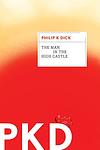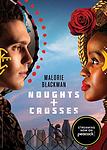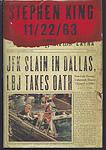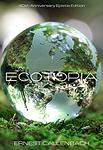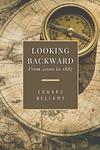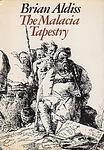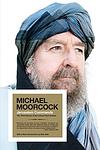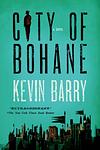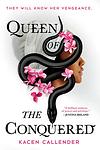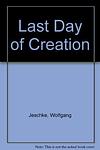The Greatest "Alternate History, Speculative Fiction" Books of All Time
Click to learn how this list is calculated.
This list represents a comprehensive and trusted collection of the greatest books. Developed through a specialized algorithm, it brings together 300 'best of' book lists to form a definitive guide to the world's most acclaimed books. For those interested in how these books are chosen, additional details can be found on the rankings page.
Genres
Alternate History is a genre of fiction that explores the possibilities of what could have happened if certain historical events had taken a different course. It involves imagining a world where key moments in history have been altered, resulting in a different outcome. This genre often blends elements of science fiction, fantasy, and historical fiction, and can provide thought-provoking insights into the impact of historical events on our present-day world.
Speculative fiction is an umbrella genre encompassing narrative fiction with supernatural or futuristic elements. This includes genres such as science fiction, fantasy, horror, supernatural fiction, superhero fiction, utopian and dystopian fiction, apocalyptic and post-apocalyptic fiction, and alternate history. The unifying factor of speculative fiction is its departure from the narrative constraints of reality, exploring imaginative and often profound questions that challenge our understanding of the world and our place within it. These stories often delve into themes like the human condition, social commentary, and the exploration of philosophical and ethical dilemmas through the lens of the fantastical or the yet-to-be-possible. By pushing the boundaries of the known, speculative fiction invites readers to consider the myriad possibilities of existence and the potential consequences of our actions in worlds that are, at once, vastly different from and eerily similar to our own.
Countries
Date Range
Reading Statistics
Click the button below to see how many of these books you've read!
Download
If you're interested in downloading this list as a CSV file for use in a spreadsheet application, you can easily do so by clicking the button below. Please note that to ensure a manageable file size and faster download, the CSV will include details for only the first 500 books.
Download-
1. Watchmen by Alan Moore
Set in an alternate history where superheroes emerged in the 1940s and 1980s, the story follows a group of retired superheroes who are brought out of retirement after the murder of one of their own. As they investigate, they uncover a plot that could change the course of history and the balance of world power. The book explores complex themes such as the morality of power, the definition of heroism, and the value of human life.
-
2. The Man in the High Castle by Philip K. Dick
Set in an alternate history where the Axis powers won World War II, this novel explores life in a world where the United States is divided into three parts: the Pacific States of America, controlled by Japan; the Rocky Mountain States, a neutral buffer zone; and the United States of America, controlled by Nazi Germany. The story follows several characters, including a jewelry designer, a trade minister, and a German secret agent, as they navigate this dystopian reality. The narrative is further complicated by the existence of a banned novel that depicts an alternate reality where the Allies won the war, causing characters to question their understanding of reality.
-
3. Noughts and Crosses by Malorie Blackman
"Noughts and Crosses" is a thought-provoking novel set in a dystopian society where racial segregation is reversed. It follows the lives of two main characters: a girl from the ruling class (Crosses) and a boy from the underclass (Noughts). Despite their different backgrounds, they form a deep bond that eventually turns into a romantic relationship, challenging the societal norms and prejudices. The novel explores themes of love, racism, and power, offering a poignant commentary on the repercussions of societal divisions.
-
4. The Underground Railroad by Colson Whitehead
This novel follows the journey of Cora, a young slave on a cotton plantation in Georgia, who escapes and embarks on a journey towards freedom via the Underground Railroad. The book presents a literal version of the historical Underground Railroad, portraying it as a physical network of tunnels and tracks beneath the Southern soil. As Cora travels from state to state, she encounters different worlds and harsh realities, each one illuminating the various forms of oppression Black people faced in America. The narrative is a brutal exploration of America's history of slavery and racism, and a testament to the unyielding spirit of those who fought against it.
-
5. The Anubis Gates by Tim Powers
"The Anubis Gates" is a thrilling time-travel adventure set in 19th-century London. When a wealthy industrialist organizes a trip back in time to witness a famous poet's lecture, the journey takes an unexpected turn. The protagonist, Brendan Doyle, finds himself trapped in the past, caught in a web of magic, Egyptian mythology, and a secret society. As he navigates through dangerous encounters and encounters historical figures, Doyle must unravel the mysteries of time travel and find a way back to his own time before it's too late.
-
6. 11 22 63 by Stephen King
"11/22/63" is a science fiction novel by Stephen King that follows the story of Jake Epping, a high school English teacher who discovers a portal that leads to 1958. After being convinced by his friend Al to use the portal to prevent the assassination of John F. Kennedy, Jake embarks on a journey through time to change the course of history. Along the way, he falls in love with a woman named Sadie and faces various obstacles that threaten to alter the timeline he is trying to change. The book explores themes of love, loss, and the consequences of trying to change the past.
-
7. The Yiddish Policemen's Union by Michael Chabon
In an alternate reality where Jewish refugees found sanctuary in Alaska during World War II, the book follows a homicide detective in the Yiddish-speaking metropolis of Sitka as he investigates the murder of a former chess prodigy. The detective's quest takes him from the city's seedy underbelly to the highest echelons of power, and he uncovers a vast conspiracy that threatens the very existence of the Jewish homeland in Alaska. The novel is a blend of detective fiction, alternate history, and Jewish humor.
-
8. Seven Days In New Crete by Robert Graves
In this speculative fiction novel, a poet from the mid-20th century is transported into a future utopian society on the island of Crete, which has been renamed New Crete. This society has rejected industrialization and lives in harmony with nature, guided by matriarchal principles and the worship of a goddess. The poet, initially enchanted by the peaceful and artistic way of life, soon discovers underlying tensions and contradictions, particularly when he becomes involved in the island's rituals and politics. As a festival that reenacts a mythic battle between the gods approaches, the poet's presence and actions inadvertently set off a chain of events that challenge the society's values and stability, leading to a dramatic conclusion that questions the viability of utopia.
-
9. Ecotopia by Ernest Callenbach
The book is a utopian novel that takes place in a fictional country located in the western part of the United States, which seceded from the rest of the country due to differing ecological policies. The society in this country is highly sustainable, with its citizens living in harmony with nature, practicing recycling and renewable energy use, and promoting gender equality. The story is told through the eyes of a skeptical American reporter who gradually comes to appreciate this alternative way of life.
-
10. Looking Backward, 2000 1887 by Edward Bellamy
This novel is a utopian science fiction story that begins in late 19th-century America, where the protagonist falls into a deep sleep only to awaken in the year 2000. He finds himself in a radically transformed society where social and economic injustices have been rectified through the establishment of a harmonious, cooperative world. The narrative explores the contrasts between the world of 1887, marked by inequality and inefficiency, and the year 2000, where a socialist paradise has been achieved, highlighting the author's critique of the social and economic issues of his time and his vision for a better future through reform and moral progress.
-
11. The Malacia Tapestry by Brian W. Aldiss
Set in an alternate Renaissance-like city where evolution is mutable and exotic creatures roam, the novel follows the life of an actor who navigates the complex social and political tapestry of Malacia. The city is a place of both beauty and decadence, where ancient traditions clash with new ideas, and the protagonist must contend with love affairs, rivalries, and the whims of a capricious prince. As he strives for success on and off the stage, he becomes entangled in the deeper machinations of a society resistant to change, exploring themes of progress, control, and the role of art in reflecting and challenging the status quo.
-
12. Jerusalem Commands by Michael Moorcock
In "Jerusalem Commands," readers are transported through a fantastical and surreal narrative that follows the adventures of Colonel Pyat, an unreliable and often delusional protagonist. Set against the backdrop of the early 20th century, the novel weaves through the chaos of a world between wars, touching upon themes of imperialism, addiction, and the quest for identity. Pyat's journey is marked by a series of escapades and misadventures that take him from Europe to Africa, exposing the dark underbelly of colonialism and the human psyche. The book is the third in a series, characterized by its rich historical tapestry and a protagonist who is as charismatic as he is morally ambiguous, leaving readers to question the very nature of truth and history.
-
13. City of Bohane by Kevin Barry
Set in the year 2053, the book is a dystopian tale about the city of Bohane, a place filled with vice, violence, and tribal warfare. The city is controlled by a gangster named Logan Hartnett, who is challenged by his estranged wife Macu and her lover, a rival gang leader. The narrative is filled with colorful characters, rich language, and a unique blend of futuristic and archaic elements, creating a vivid, darkly comic vision of a future Ireland.
-
14. Against the Day by Thomas Pynchon
The novel is a sprawling epic that spans the period from the 1893 World's Fair to the years following World War I. It follows the stories of several characters including the anarchist Traverse family, a group of balloonists, a detective, and a mathematician. The book explores themes of anarchism, capitalism, and technology, and incorporates elements of science fiction, adventure, and historical fiction. It is noted for its complex structure and dense, multifaceted narrative.
-
15. The Time Ships by Stephen Baxter
This novel is a sequel to H.G. Wells' classic "The Time Machine," expanding on the original story with a grand exploration of time and space. The protagonist, the Time Traveler, embarks on another journey, only to find his actions have altered the future. He navigates through a series of alternate realities and timelines, including a world dominated by Morlocks, a post-human solar system, and a universe at the brink of its end. Throughout his adventures, he confronts philosophical and moral dilemmas, including the nature of humanity, the concept of time, and the impact of his own interventions. This ambitious narrative combines hard science fiction with deep philosophical questions, offering a complex and thought-provoking continuation of the original tale.
-
16. The Years of Rice and Salt by Kim Stanley Robinson
The book is an alternate history novel that explores a world in which the Black Death plague of the 14th century was far more lethal to Europeans, nearly wiping them out. As a result, world history is dramatically reshaped: Islamic and Buddhist societies emerge as the dominant global powers, leading to vastly different technological, cultural, and social developments. The narrative spans several centuries, following a group of characters who are reincarnated into various lives and roles, allowing the reader to experience the evolution of this alternate world through their interconnected stories. The novel delves into themes of history, religion, technology, and human nature, all while imagining a world both familiar and strange, shaped by different forces and ideas than those that have shaped our own history.
-
17. American War by Omar El Akkad
Set in the late 21st century during the second American Civil War, this novel follows the life of Sarat Chestnut, a young girl from Louisiana. As the South refuses to give up fossil fuels, the country plunges into a violent and chaotic war, leading Sarat and her family to live in a refugee camp. Sarat's experiences of loss and hardship fuel her transformation into a hardened instrument of war. The novel explores themes of revenge, the impact of war on individuals, and the cyclical nature of violence.
-
18. Selected Stories of Philip K. Dick by Philip K. Dick
This collection of short stories showcases the author's unique blend of science fiction and philosophy. Ranging from dystopian futures to alternate realities, the stories explore themes such as the nature of reality, human identity, and the impact of technology on society. The author's work is known for its complex narratives, thought-provoking themes, and vividly imagined worlds, all of which are on full display in this anthology.
-
19. The Difference Engine by William Gibson, Bruce Sterling
"The Difference Engine" is an alternative history novel set in Victorian England, where Charles Babbage successfully builds his Analytical Engine, a revolutionary steam-powered computer. The story follows two protagonists, one a paleontologist and the other a detective, as they become embroiled in a conspiracy involving political intrigue, technological advancements, and a dangerous secret society. With a blend of historical accuracy and speculative fiction, the book explores themes of power, progress, and the consequences of technological innovation.
-
20. Queen Of The Conquered by Kacen Callender
Set on a Caribbean-inspired island, the narrative unfolds in a world where colonial powers have subjugated the native population. The protagonist, a woman of mixed heritage, possesses a unique ability to control minds—a power she plans to use to exact revenge on the ruling class that oppressed her people and murdered her family. As she maneuvers through a treacherous web of politics, rebellion, and personal ambition, she grapples with the moral complexities of her quest for vengeance and her own complicity in the brutal system she seeks to overthrow. The story is a gripping exploration of power, justice, and the cost of liberation in a society rife with inequality and prejudice.
-
21. The Eyre Affair by Jasper Fforde
In a parallel 1985 where literature is taken to extremes, a literary detective named Thursday Next navigates a world where the boundaries between reality and fiction are blurred. When a criminal mastermind begins kidnapping characters from classic novels, Thursday must enter the pages of Charlotte Brontë's "Jane Eyre" to pursue the villain and restore the beloved story to its rightful course. Her journey is fraught with danger, wit, and a touch of romance, as she contends with a time-traveling father, a pet dodo, and the complexities of her own life entwined with the fictional landscapes she protects.
-
22. Lest Darkness Fall by L. Sprague de Camp
This science fiction novel revolves around the adventures of Martin Padway, a modern-day man who inexplicably finds himself transported to Rome during the 6th century. Faced with the decline of the Roman Empire, Padway uses his knowledge of history and modern technology to introduce innovations in an attempt to alter the course of history and prevent the onset of the Dark Ages. Through his efforts to implement social and technological advancements, he navigates the complexities of ancient politics, economics, and warfare, striving to create a better future. The story blends historical fiction with time travel, exploring themes of innovation, cultural exchange, and the impact of individual actions on the course of history.
-
23. The Last Day Of Creation by Wolfgang Jeschke
In this thought-provoking science fiction novel, a daring and unconventional narrative unfolds, exploring the concept of time travel as a tool for geopolitical advantage. The story delves into an ambitious project initiated by the United States military, aiming to drastically alter the course of history and secure ultimate power by transporting resources from the past. As the narrative progresses, the ethical, moral, and unforeseen consequences of manipulating time are examined, leading to unexpected and profound implications for humanity's understanding of history, destiny, and the very fabric of the universe. This novel masterfully combines scientific speculation with human drama, challenging readers to ponder the limits of human ingenuity and the price of ambition.
-
24. Anno Dracula by Kim Newman
In this alternate history novel, the world is a macabre tapestry where Count Dracula has not only survived but triumphed, marrying Queen Victoria and spreading vampirism throughout the British Empire. The narrative weaves a complex, gothic tale where historical and fictional characters coexist. As the vampire elite rise to power and influence, a gripping story of political intrigue, horror, and murder unfolds, with a Jack the Ripper-like figure preying on vampire prostitutes in London's shadowy streets. The book explores themes of class, power, and the nature of monsterhood, all set against the rich backdrop of a Victorian society transformed by the undead.
-
25. Bring The Jubilee by Ward Moore
This novel presents an alternate history where the Confederate States of America won the Civil War, leading to a vastly different 20th century. The protagonist, hailing from a diminished and impoverished United States, becomes involved with a community of scholars and eventually gains access to a time machine. Driven by curiosity and a desire to understand how history could have been different, he inadvertently causes the very outcome he sought to prevent, ensuring the Confederacy's victory at the pivotal Battle of Gettysburg. The book explores themes of destiny, the impact of individual actions on history, and the nature of progress in a society shaped by a different set of historical winners and losers.
Reading Statistics
Click the button below to see how many of these books you've read!
Download
If you're interested in downloading this list as a CSV file for use in a spreadsheet application, you can easily do so by clicking the button below. Please note that to ensure a manageable file size and faster download, the CSV will include details for only the first 500 books.
Download
